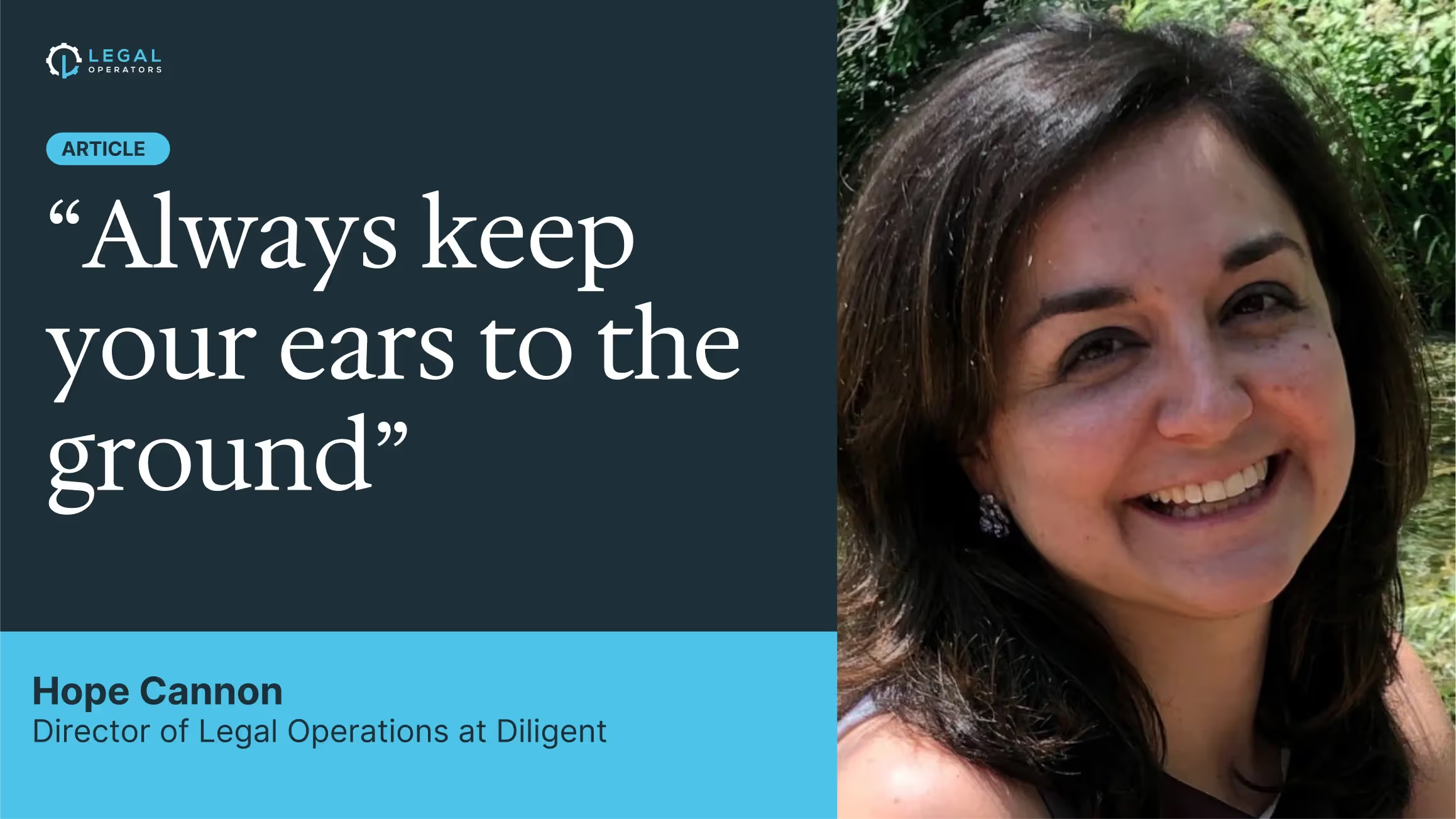“Always keep your ears to the ground”


Working in the legal operations field almost guarantees that you’re going to develop strong opinions on topics ranging from the rising cost of outside counsel to how much your team should trust artificial intelligence (AI) on sensitive matters. Hope Cannon, the Director of Legal Operations at Diligent, has a unique view of the ecosystem, serving as the internal legal operations lead for the company as well as getting to see how its customers are optimizing their legal departments.
“I have the best of both worlds in that I can speak to practitioners as a practitioner,” she told Legal Operators in a recent interview. In these discussions, one topic has clearly dominated over the last two years: AI.
Who’s afraid of AI?
“There’s always been this fear in the legal profession…’You’re trying to take away my job,’” she explained, acknowledging a common concern among lawyers. “But that is not, of course, what AI is supposed to do or is doing. It’s really trying to help you be more efficient and effective. There will always need to be a lawyer present.”
What tangible benefits does Hope see from this AI revolution? She shared an example from Diligent’s own Entities product. It allows users to ask questions like, “Who were the directors in 1999? Who are all the shareholders? What’s the history of this organization?” Hope believes streamlined access to such information will be key to helping legal departments operate more efficiently.
However, Hope cautions against blindly trusting AI outputs. “Of course not,” she said. “But on the flip side, if you’re not using AI, you’re relying on humans, and there’s human error. The question then becomes: Is the risk that much more disproportionate to what AI is going to be providing to you anyway?”
Hope’s framework for legal ops success
Given her broad perspective as both a practitioner and an industry observer, we asked Hope for lessons our community could apply. She explained, “Legal operations professionals operate within three critical buckets: people, processes, and technology.”
On the people side, she stressed understanding roles, responsibilities, and ensuring team members enjoy their work. “When people enjoy what they do, they perform better.” For processes, “...it’s understanding what processes you have, what you need, and then why you have certain processes.” She emphasized periodically “shedding” unnecessary processes and supporting the team with well-structured systems.
On technology, Hope acknowledged that while AI dominates discussions, legal operations thrive by seeing the broader picture, playing a pivotal role in preparing their teams and organizations for continual technological shifts.
Getting the right information
With tighter budgets, leaner teams, and greater responsibilities, success in legal operations hinges on accessing accurate and timely information. “We need to have our ear to the ground. It is our job to be at the forefront of any change in technology and regulations,” Hope explained.
What is Hope’s information diet? Hope highlights communities like Legal Operators. She also suggests taking greater advantage of technology partners who offer a bird’s eye view into the ecosystem. “We’re all in it just to learn and continue to learn and just always keep your ears to the ground.”
Good words to live by.







